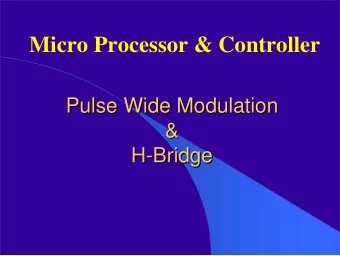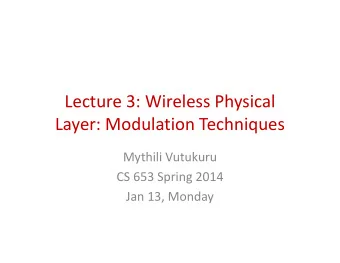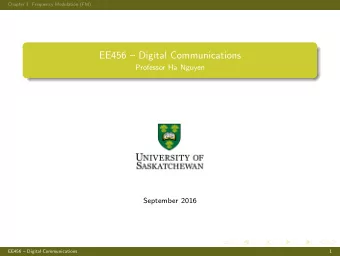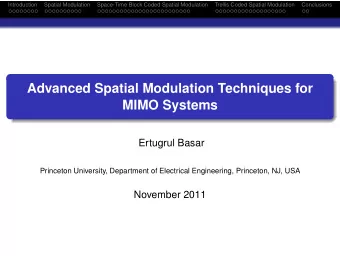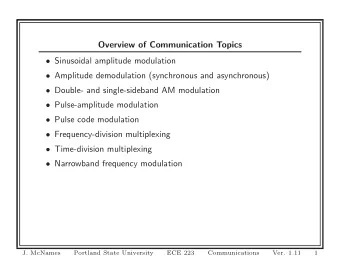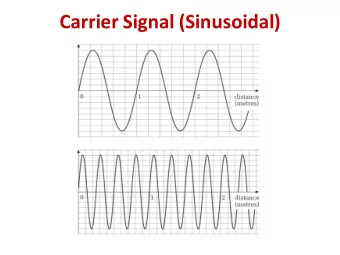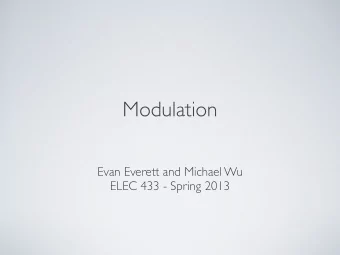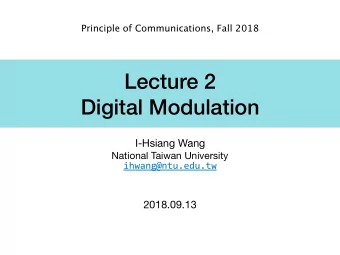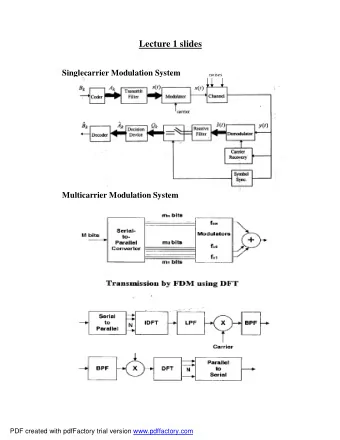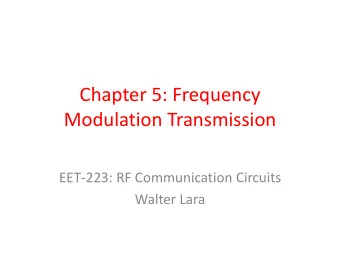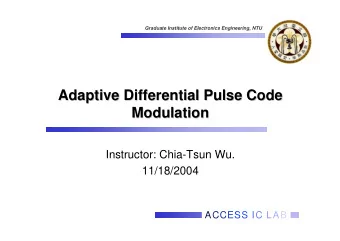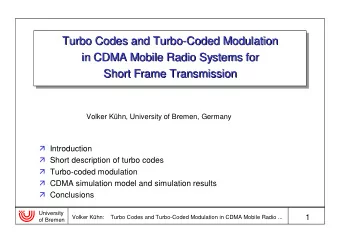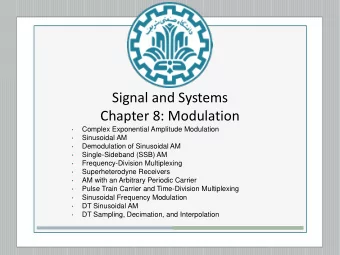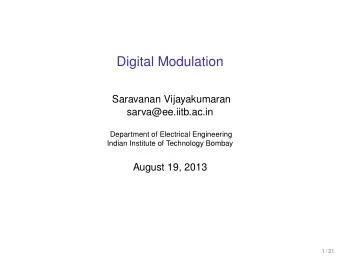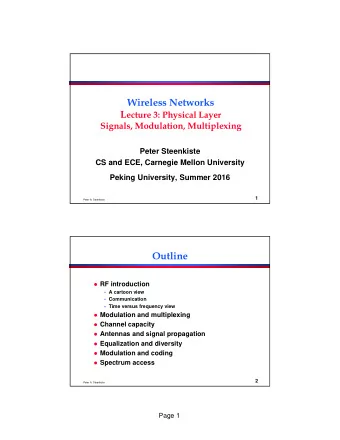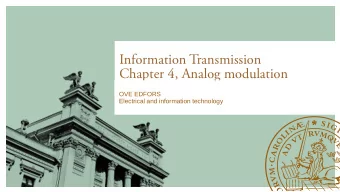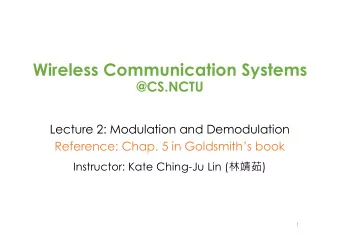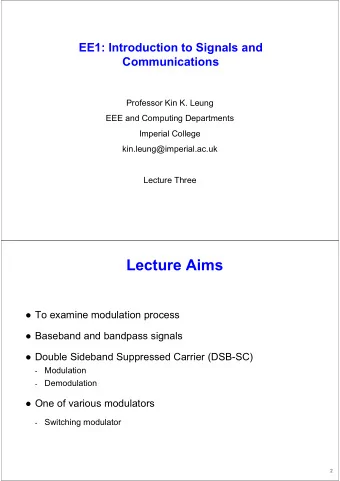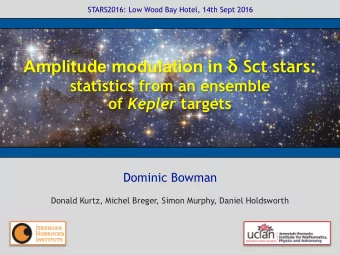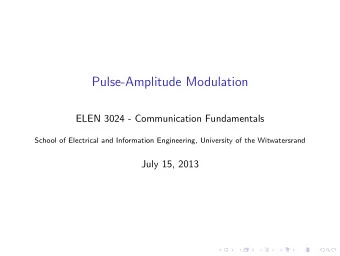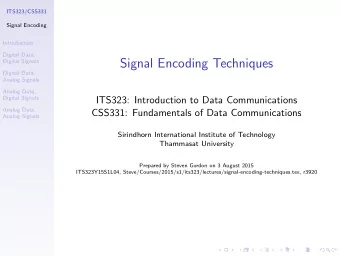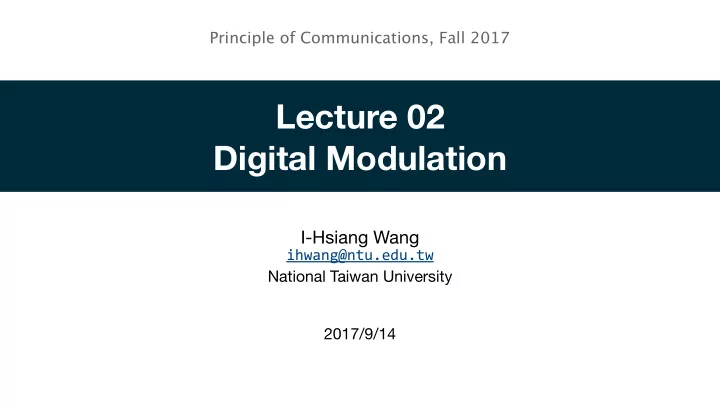
Lecture 02 Digital Modulation I-Hsiang Wang ihwang@ntu.edu.tw - PowerPoint PPT Presentation
Principle of Communications, Fall 2017 Lecture 02 Digital Modulation I-Hsiang Wang ihwang@ntu.edu.tw National Taiwan University 2017/9/14 Outline Digital-to-analog and analog-to-digital: a signal space perspective Pulse amplitude
Principle of Communications, Fall 2017 Lecture 02 Digital Modulation I-Hsiang Wang ihwang@ntu.edu.tw National Taiwan University 2017/9/14
Outline • Digital-to-analog and analog-to-digital: a signal space perspective • Pulse amplitude modulation (PAM), pulse shaping, and the Nyquist criterion • Quadrature amplitude modulation (QAM), and the equivalent complex baseband representation • Symbol mapping and constellation set 2
System architecture of digital modulation x ( t ) Symbol Pulse Up { u m } x b ( t ) { c i } Mapper Shaper Converter discrete baseband passband coded bits Noisy sequence waveform waveform Channel y ( t ) Symbol { ˆ u m } Sampler y b ( t ) Down { ˆ c i } Demapper + Filter Converter • Three major components (for the Tx): ‣ Symbol mapping: bit sequence → symbol sequence ‣ Pulse shaping: symbol sequence → (baseband) waveform ‣ Up conversion: baseband waveform → passband waveform 3
Symbol mapping x ( t ) Symbol Pulse Up { u m } x b ( t ) { c i } Mapper Shaper Converter discrete baseband passband coded bits Noisy sequence waveform waveform Channel y ( t ) Symbol { ˆ u m } Sampler y b ( t ) Down { ˆ c i } Demapper + Filter Converter • To be designed: the constellation set and how to map bits to symbols • Constellation sets to be covered: standard PSK, standard PAM, standard QAM • Mapping: Gray mapping 4
Conversion between sequence and waveform x ( t ) Symbol Pulse Up { u m } x b ( t ) { c i } Mapper Shaper Converter discrete baseband passband coded bits Noisy sequence waveform waveform Channel y ( t ) Symbol { ˆ u m } Sampler y b ( t ) Down { ˆ c i } Demapper + Filter Converter • A pragmatic approach: Pulse Amplitude Modulation (PAM) • To be designed: the modulating pulse • System parameter: bandwidth • Nyquist criterion : a su ffi cient condition for the pulse to satisfy in order to avoid aliasing e ff ect 5
Conversion between basedband and passband x ( t ) Symbol Pulse Up { u m } x b ( t ) { c i } Mapper Shaper Converter discrete baseband passband coded bits Noisy sequence waveform waveform Channel y ( t ) Symbol { ˆ u m } Sampler y b ( t ) Down { ˆ c i } Demapper + Filter Converter • A pragmatic approach: Quadrature Amplitude Modulation (QAM) • Essentially speaking, PAM with two branches: ‣ one mixed with cosine, the other with sine ‣ system parameter: carrier frequency • Equivalent complex baseband representation 6
Part I. Signal Space A Linear Algebraic Point to View for the Conversion between Sequences and Waveforms 7
Recommend
More recommend
Explore More Topics
Stay informed with curated content and fresh updates.
